Aravind Eye Hospitals and Eye Care System
Preparing the Way – Seeds of Service and Sources of Inspiration
Grateful thanks to Drs. Emmett Cunningham, Bruce Spivey, William Stewart, and David Vastine for their contributions.

A unique element of our CPMC residency program is our over 40-year association with Aravind, dating from Dr. Bruce Spivey’s tenure as CEO of the American Academy of Ophthalmology and his relationship with Aravind’s founder, Dr. Venkataswamy, known as “Dr. V.” He had also become friends with Ravilla Thulasiraj, now Executive Director of the Aravind Eye Care System in India. According to Spivey, “We developed a close friendship, and he was marvelously supportive of CPMC Department of Ophthalmology residency rotations and developing the Aravind concept within Pacific Vision Foundation.”
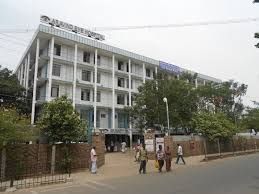
The department’s clinical association has deep roots, beginning with a joint visit to Madurai India in 1983 by orbital and oculoplastic surgeon Dr. Bill Stewart and corneal surgeon Dr. David Vastine. Bringing his expertise in infectious disease, stemming from his work in Nepal, West Africa, and Pakistan, Vastine had earlier met Dr. V at the Illinois Eye Infirmary, later working with him in India on a research fellowship.
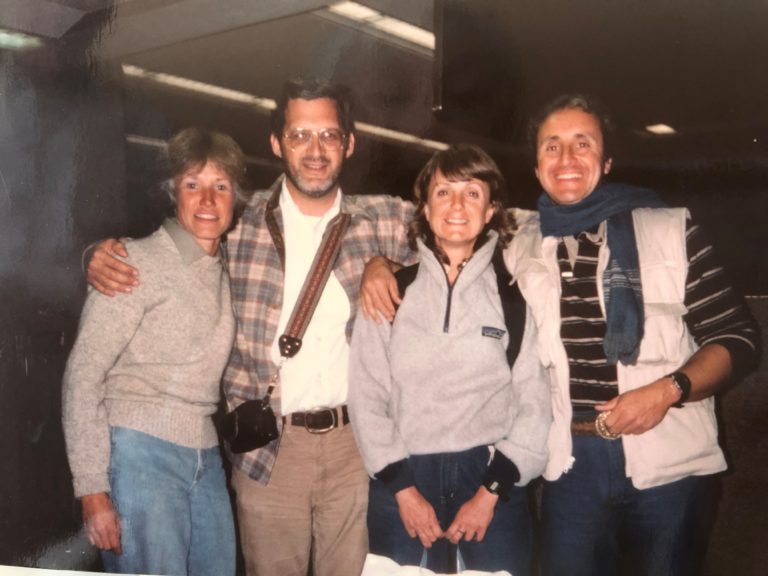
In 1992 ties were further strengthened when Uveitis service Chief Dr. Bob Nozik began a long association with Aravind, including his successor, Dr. Emmett Cunningham two years later. Cunningham credits Nozik with assisting Aravind in the creation of their Uveitis service currently headed by Dr. R. Rathinam who trained as a Fellow with Nozik at UCSF.
Times changed rapidly and profoundly following the early visits by Stewart and Vastine. Aravind has become the largest eye care system in the world due to the pioneering work of Dr. V and his dedicated, skilled, caring, and compassionate family. Stewart credits his experiences at Aravind for his decision to create another medical institution, the Institute for Health and Healing at CPMC Sutter Health, saying “from the time of that visit forward, my life as both a surgeon and a human being was permanently transformed.”
The story of Aravind centers on Dr. Venkataswamy who, after his mandatory retirement (at the age of 58 in 1976) as Chair of the Department of Ophthalmology at the nearby Medical School, was moved by a desire to serve his community with a higher standard of ophthalmic care regardless of caste, religion, or capacity to pay. He opened a small eye hospital in a converted house with 2 operating rooms and 11 beds and began to earnestly recruit his family to join him in this healing mission.
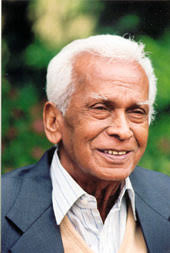
Initially in the late 70’s and early 80’s, outpatient visits averaged about 50,000/year and surgeries about 7,500/year. From this humble beginning, in the 2018 -2019 fiscal year outpatient visits numbered 4.4 million and surgeries nearly 500,000. The quality of work meets international standards, their business plans and patient and surgical protocols are freely shared and the number of hospitals, community clinics, patients, staff, and possibilities continue to grow. What makes this even more remarkable is the amount of care that is provided free of charge.
Within the Aravind Eye Care System a reverence for every being exists. The staff exhibits a heartfelt connection to an unseen inner energy reservoir – a spirit of service and a connection to meaningful work that moves many of them to begin each day in the hospital’s meditation room. Dr. “V” was a saint-like man with fingers gnarled from severe inflammatory arthritis that afflicted him early in his medical training. Regardless of the challenges that he faced, he learned to perform ophthalmic surgery using standard instruments and did more than 100,000 surgeries during his career while also training hundreds of young surgeons.
Dr. “V” used three transferable principles to define the Aravind culture, which in turn catalyzed its phenomenal accomplishments: 1) Compassion – we will not turn anyone away. 2)Excellence – we will not compromise quality or safety. 3) Sustainability – we must be self-reliant. Since its inception, no other eye care organization in the world has come close to their unsurpassed volume and impeccable quality – while maintaining self-sufficiency.
Dr. V expressed his vision simply, saying, “As we grow in spiritual consciousness, we identify with all there is in the world. Then there can be no exploitation. It is ourselves we are helping. It is ourselves we are healing.”
Dr. “V” (1918 – 2006).
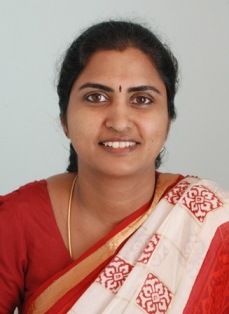
“After having completed my residency at Aravind Eye Hospital Madurai, I was extremely fortunate to have been trained in the field of Orbit, Oculoplastic and Ocular Oncology under the guidance of Dr. William B. Stewart.
After the training. I established the Department of Orbit, Oculoplastic Ocular Oncology and Ocular and Orbital Prosthesis at Aravind Eye Hospital, Madurai. Over the years with several visits by Dr. Stewart and his guidance in the last 20 years, this clinic has seen over 500,000 patients and performed over 100,000 surgeries. The Department has integrated oncology care for patients under the Ring of Hope initiative which has provided free treatment for over 7000 patients. The department is currently involved in genetic research pertaining to Retinoblastoma to bring down the costs of genetic testing. Dr. Stewart has been my mentor, inspiration, and guide both on my professional and personal front. His selfless nature of spreading knowledge has influenced me in training 74 long term national and 23 international fellows, 79 ocularists across the globe, especially in the developing countries. He has also pushed me towards developing cost effective, indigenous consumables in orbital and oculoplastic surgeries and he has undoubtedly influenced me in developing this department.”
Usha Kim, MD Head of Orbit, Oculoplasty, Ocular Oncology & Ocular Prosthetic Services, Professor in Ophthalmology, Aravind Eye Hospital, Madurai, Director – Allied Ophthalmic Personnel Training Programme, Aravind Eye Care System, and President of the Oculoplastics Association of India
During the 1980’s and 90’s Dr. Stewart was an active teacher at Aravind, assisting in the creation of the Department of Orbit, Oculoplasty, Ocular Oncology and Ocular Prosthetics at Aravind. Today he remains a dedicated volunteer and in 2019, in recognition of his work, he was the recipient of the Dr. G. Venkataswamy Endowment Oration Award in commemoration of the life and work of Dr. “V” – “More Than the Eye Can See – The Legacy of Dr. V!” Aravind Eye Hospital, Madurai, India.
The first resident to go to Aravind was Dr. Pulin Shah in 2005 who remembers an experience that was “truly magical and profound. I saw patients in all the different clinics and was in awe at how the system worked. The experience had a huge impact on my career. It gave me the tools and motivation to make international Ophthalmology a regular part of my life. I’ve gone on international cataract missions every year of my career for the past 15 years, and I am now the board President of our non-profit International Eye Institute working mostly in Guatemala.”
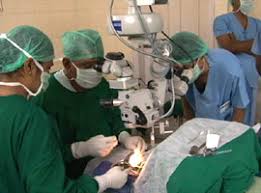
Residents accepted for an international rotation to Aravind experience a multidimensional learning and healing experience for patients, trainees, and experts alike. Many who visit see clinics, hospitals, well trained and caring staff doing heroic work for all who enter. Some in addition to the buildings and people experience a temple of surgery, service, spirit, and soul. Dr. Melanie Hom who went in 2007, recalls, “I was able to perform two extracapsular cataract surgeries a day and fine tune my suturing skills. The teachers and fellow residents are kind and incredibly willing to help you better your knowledge and skills. It was eye-opening.”
Our residency is indebted to the work of Drs. Cunningham, Nozik, Spivey, Stewart, and Vastine, for the long and productive relationship, enjoyed today as many third-year residents are accepted for elective training at Aravind.

